The Michael Shermer Show
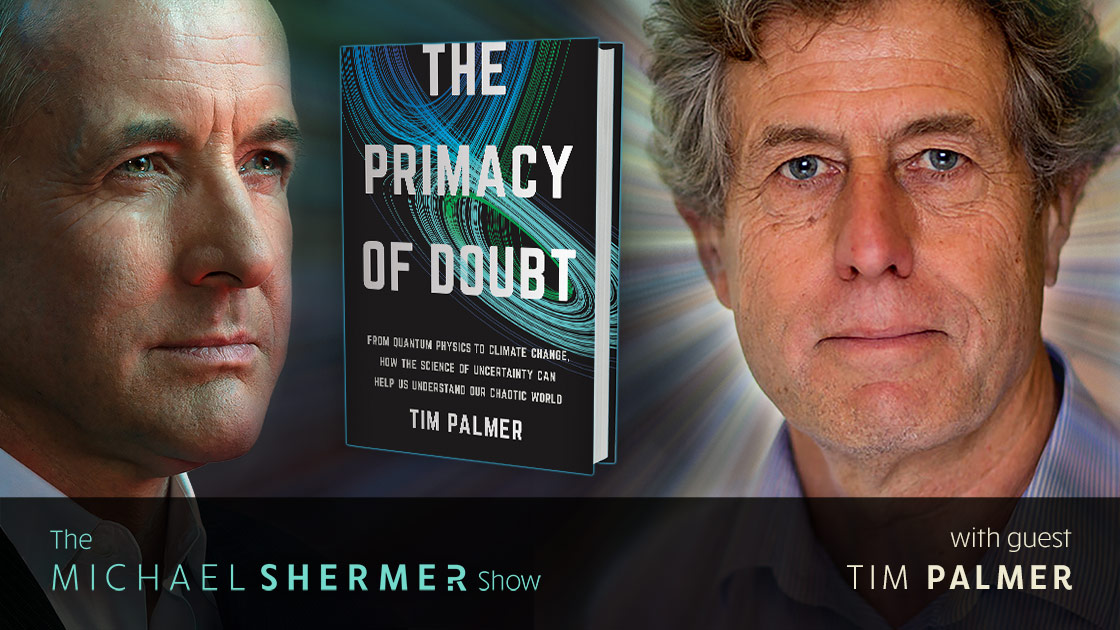
Shermer and Palmer discuss: doubt and skepticism • when doubt slides into denial • uncertainty as a measurement problem vs. inherent in natural systems • contingency and necessity, randomness and law • the butterfly effect • the geometry of chaos • quantum uncertainty • weather forecasting • climate change • pandemics • economic recessions • human decision making and creativity • free will • consciousness, and God.
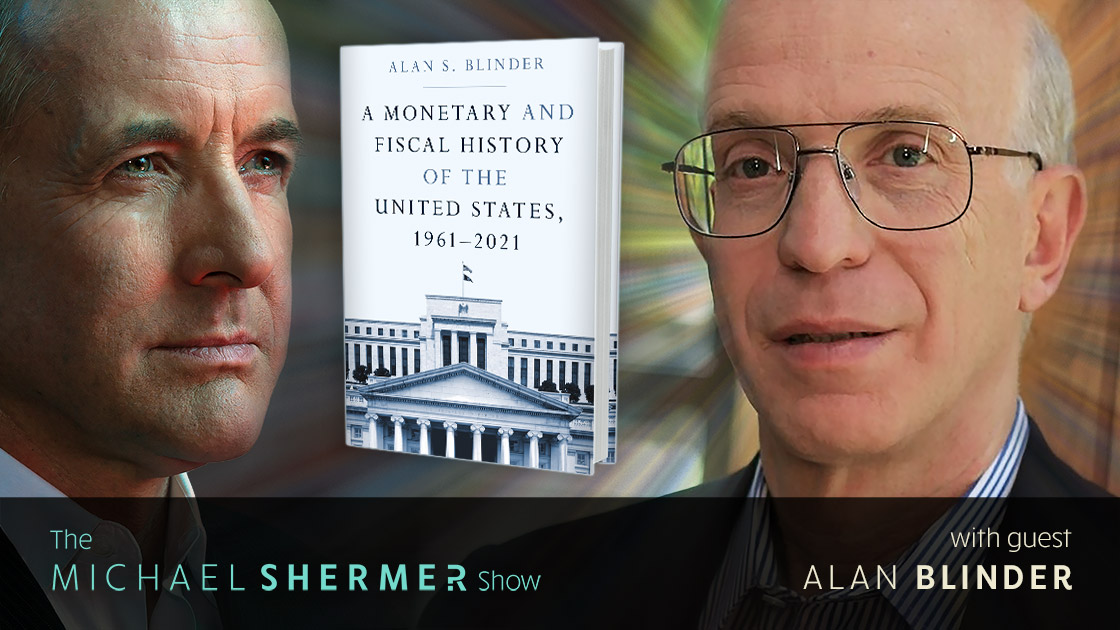
Shermer and Blinder discuss: serving on Bill Clinton’s Council of Economic Advisers • being the Vice Chair of the Federal Reserve Board • What kind of science is economics? • how one’s political leanings influence cause-and-effect economic theories • the difference between monetary and fiscal policy • a Keynesian approach to economics • inflation, stagflation, recessions, depressions, Bull and Bear markets defined • interest rates • the Federal Reserve • the money supply • What makes money valuable without the…
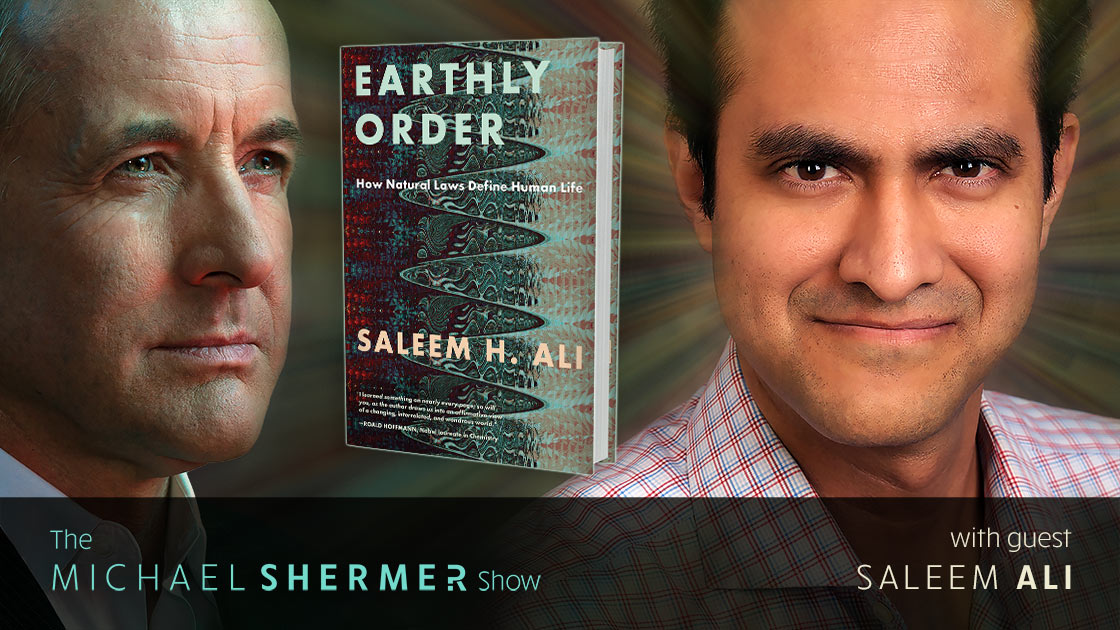
Shermer and Ali discuss: • the search for structure in nature • order and randomness • economic laws • natural laws • natural orders: molecular, quantum, crystals, carbonic, nuclear, magnetic • hydrological, organismic, Gaia and Medea • reductionism and holism • Islamic economics • the origin of wealth • Is there an optimal economic order? • how mining rights work in the U.S. and elsewhere • the voter’s paradox • Pareto optimality and why we can’t achieve it • resource…
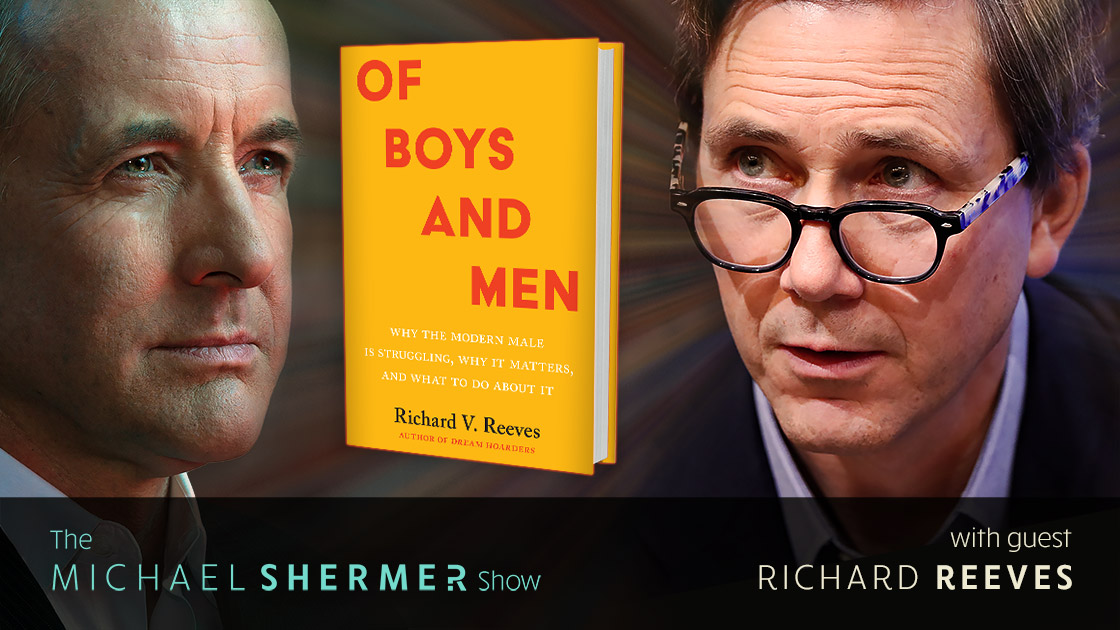
Shermer and Reeves discuss: comparison method: U.S. vs. other WERID countries • education • work/labor market • family • marriage • Divorce/custody/spousal support/child support • intersectionality I: Black boys and men vs. White boys and men • intersectionality II: poor boys and men vs. middle class/upper class boys and men • What is a man? (nature and nurture in the making of a male) • what the political left gets wrong about boys and men • what the political right…
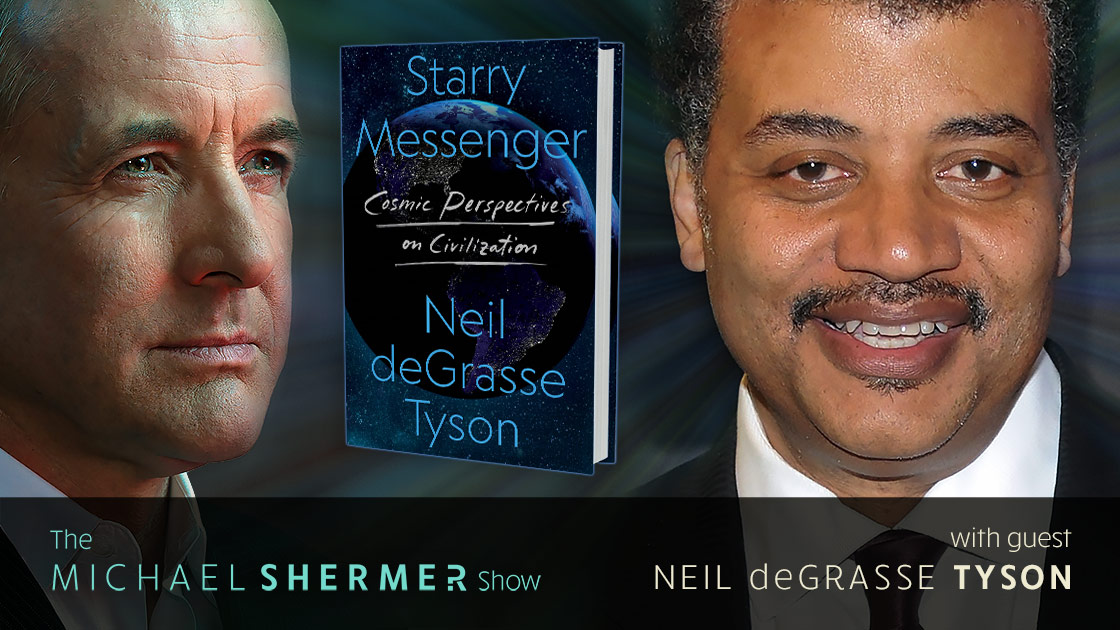
Shermer and Tyson discuss: why he decided to write about social, cultural, and political issues now • conflict and resolution in science and society • moral progress in society and why it happens • meatarians and vegetarians • race and gender • law and order • the principle of interchangeable perspectives • conflicting rights and how to resolve them • Rationalia (Neil’s hypothetical country whose laws are based on rationality) • life and death • how long Neil would like…
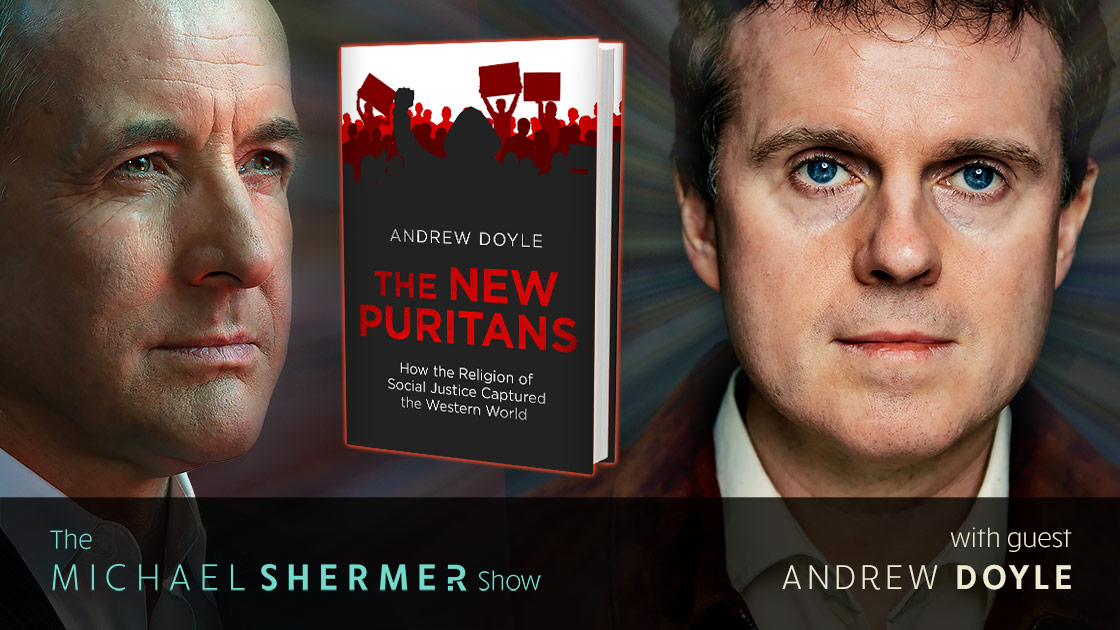
Shermer and Doyle discuss: terminology of: PC, identity politics, woken, social justice, antifa, BLM, TERF, intersectionality • Critical Social Justice as a witch craze • Satanic Panic (1980s) • Recovered Memory Movement (1990s) • How widespread is the problem: minor skirmishes on social media or mainstream? • Hill-Harris 2021 poll: 32% voters ID as woke and 31% said they don’t know what the term means • new puritanism as a secular religion • Whiteness and White fragility • Implicit Association…
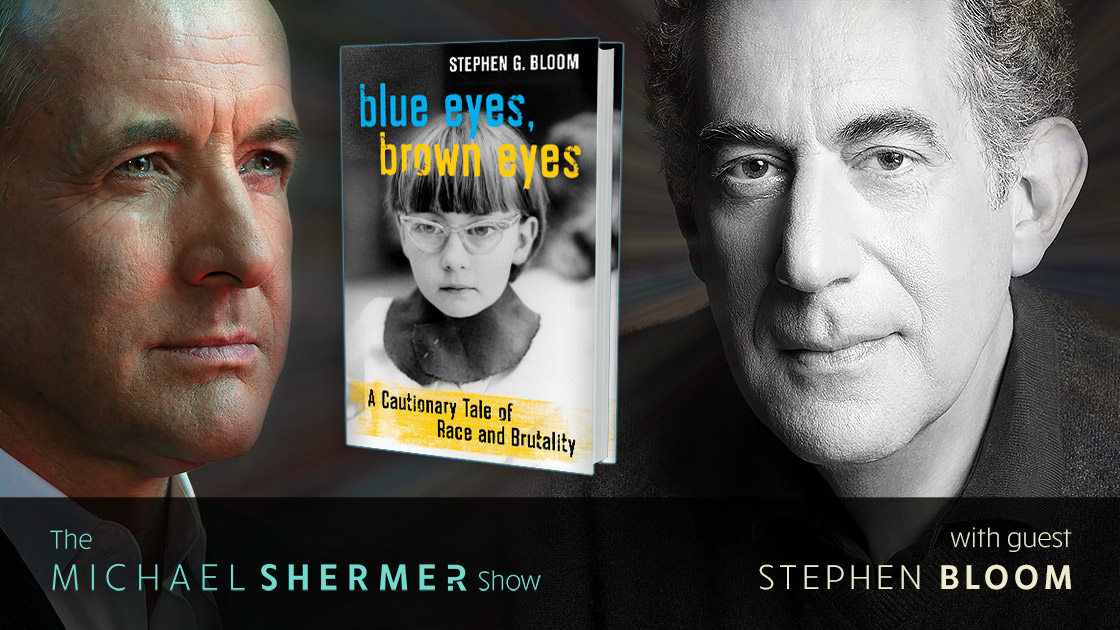
Shermer and Bloom discuss: “Blue Eyes, Brown Eyes” — Jane Elliott famous racism experiment • reactions to it (in the classroom, locally, nationally, internationally) • whether the “experiment” was really more of a demonstration • public interest, from Johnny Carson to Oprah Winfrey • the questionable ethics of the experiment • what it reveals about tribalism, racism, obedience to authority, role playing, social proof • whether it reveals hidden racist attitudes or creates them in children • race sensitivity training programs (and…
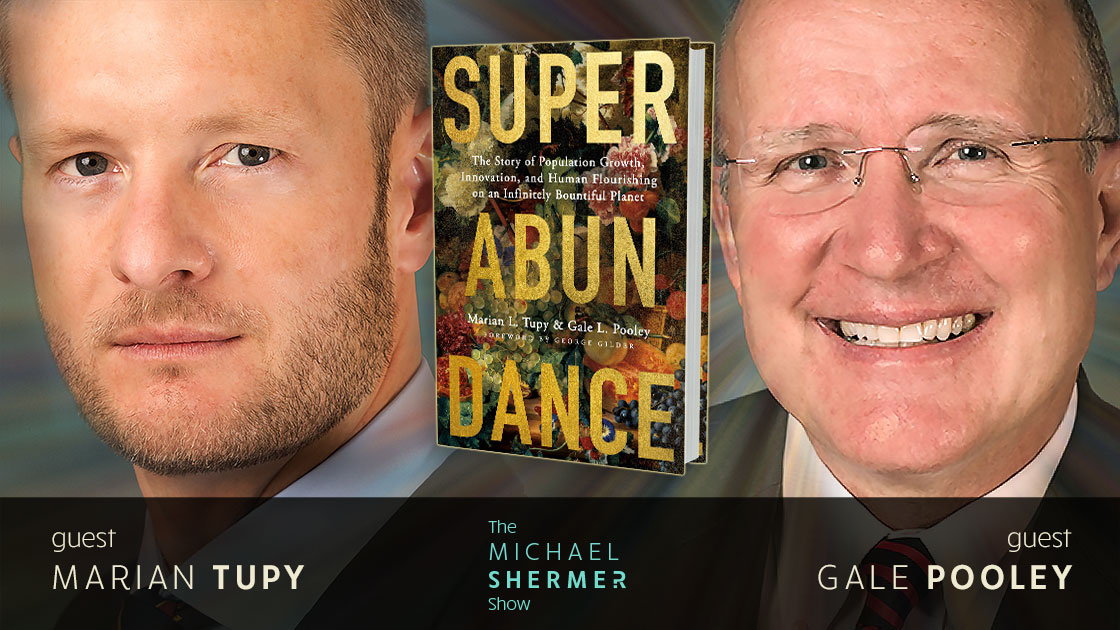
Shermer, Tupy, and Pooley discuss: why we long for the “good ol’ days” • the Malthusian trap • Ehrlich’s predictions on overpopulation • the birth dearth • the Simon Abundance Index • compound interest • What does it mean for the economy to grow 2–3% a year? • accumulating wealth • what poorer countries need to do to become richer countries • running out of fossil fuels • Obama’s “you didn’t build that” speech • inflation • electric vehicles •…
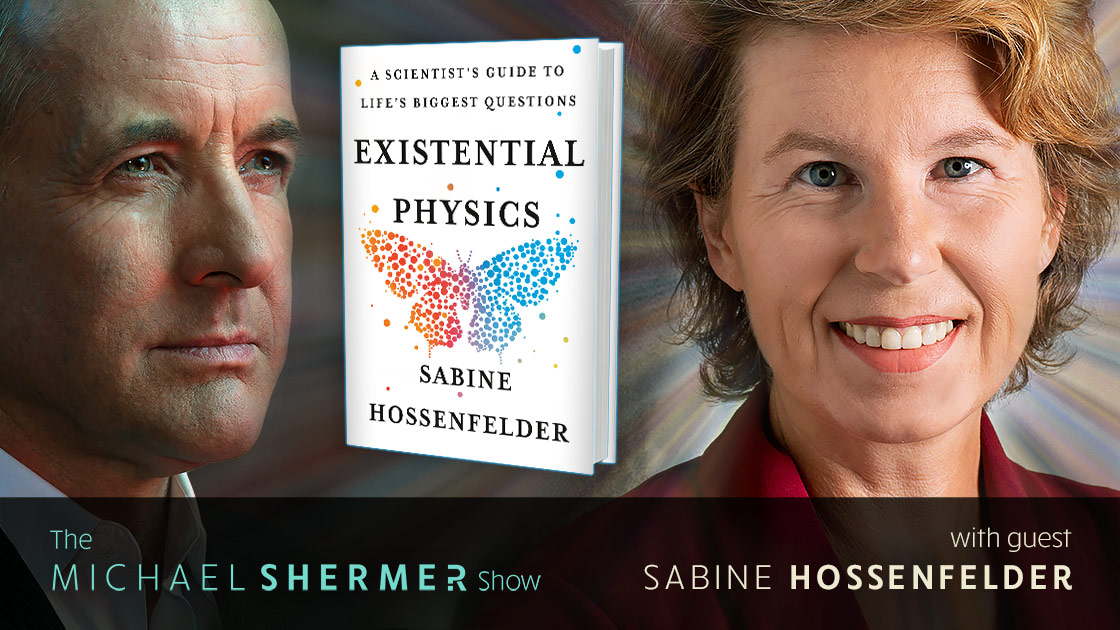
What is time? Does the past still exist? How did the universe begin and how will it end? Do particles think? Was the universe made for us? Why doesn’t anyone ever get younger? Has physics ruled out free will? Will we ever have a theory of everything? To examine these ideas, Shermer speaks with Sabine Hossenfelder, a research fellow at the Frankfurt Institute for Advanced Studies, Germany. She has published more than eighty research articles about the foundations of physics,…

Shermer and Kisin discuss: growing up in Russia • “The Talk” Russian parents give their children • What is the “West” and how do Russians view it • Should Whites feel some guilt for slavery, racism, misogyny, bigotry, etc.? • systemic racism: criminal justice, housing, employment, income, wealth • Critical Race Theory (CRT) • immigration • free, private, and public speech • how language is used to distort truth • the origin of “political correctness” • journalism vs. activism •…
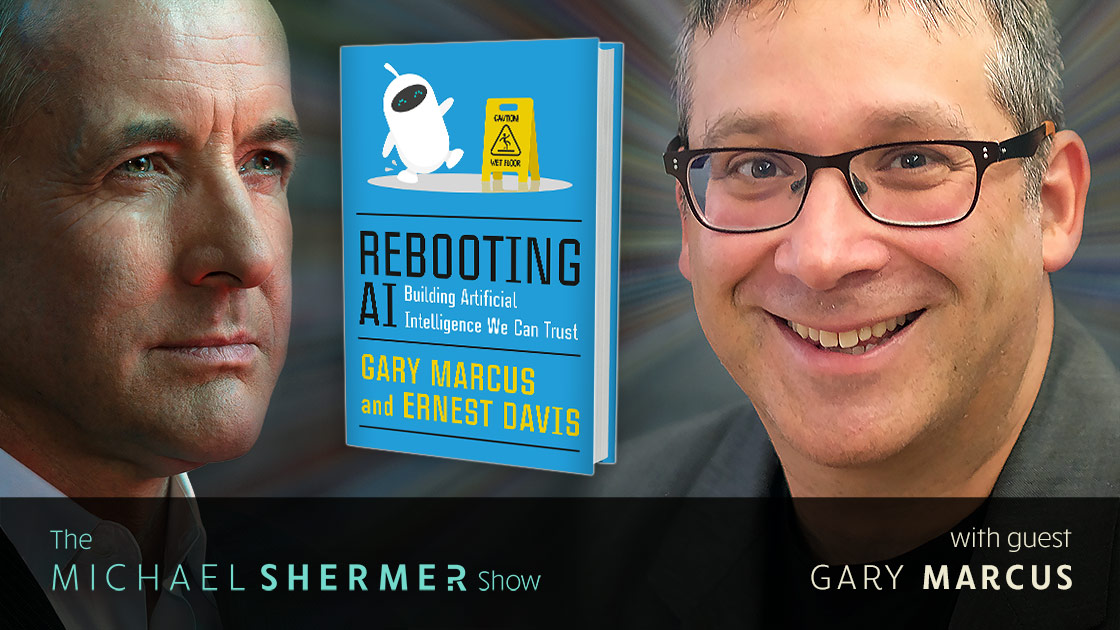
Shermer and Marcus discuss: why AI chatbot LaMDA is not sentient • “mind”, “thinking”, and “consciousness”, and how do molecules and matter give rise to such nonmaterial processes • the hard problem of consciousness • the self and other minds • How would we know if an AI system was sentient? • Can AI systems be conscious? • free will, determinism, compatibilism, and panpsychism • language • Can we have an inner life without language? • How rational or irrational…
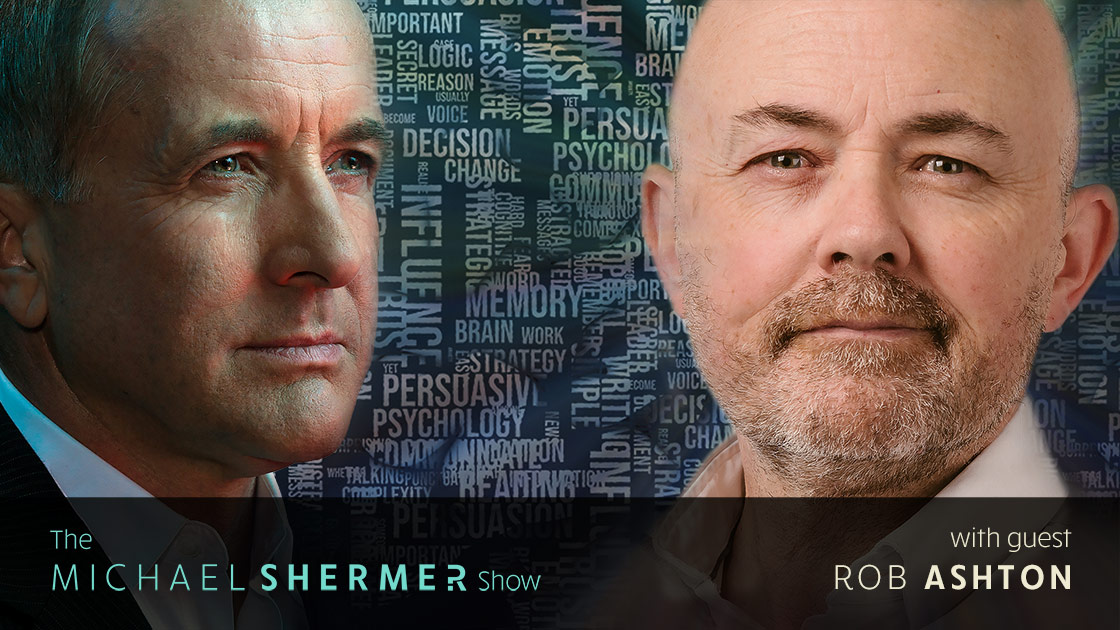
Shermer and Ashton discuss: what it’s like advising Google and Buckingham Palace on how to communicate • what makes writing appealing and effective • how to write better emails and social media posts • why the messages we write often backfire • why emails so often make us angry • What makes Donald Trump such a powerful communicator that he can seemingly hypnotize tens of millions of people and dictate entire news cycles with a single statement? • when you…

Shermer and de Salcedo discuss: her diagnosis of multiple sclerosis at age 27 • her long-term psychological strategy for living with a serious illness • what “eating like a pig” actually means • our 70-year-old “diet detour” • the obesity crisis • how dietary studies are conducted • the baseline health of lab rats • static vs. dynamic metabolism • diseases you can treat, manage, or prevent with exercise • cholesterol and statins • why exercise is more important than…

Shermer and Kirchick discuss: archives and secret sources of secret histories • the cause of homophobia, and how and why homosexuality was thought of as a “contagious sexual aberrancy” • why there is no lesbian history of Washington • J. Edgar Hoover, Clyde Tolson and gay mythmaking • FDR and Sumner Welles • why at the height of the Cold War, it was safer to be a Communist than a homosexual • Whittaker Chambers and Alger Hiss • the McCarthy…

Shermer and Cooke discuss: the definition of male and female across the animal kingdom • male bias in the history of science • genes involved in sex determination and how they work • sexual selection • adaptationism vs. non-adaptationism • Why do women have orgasms? • why female animals are just as promiscuous, competitive, aggressive, dominant and dynamic as males • what humans can learn from non-human animals • maternal/paternal instincts • patriarchy/matriarchy across the animal kingdom • why the sexes…
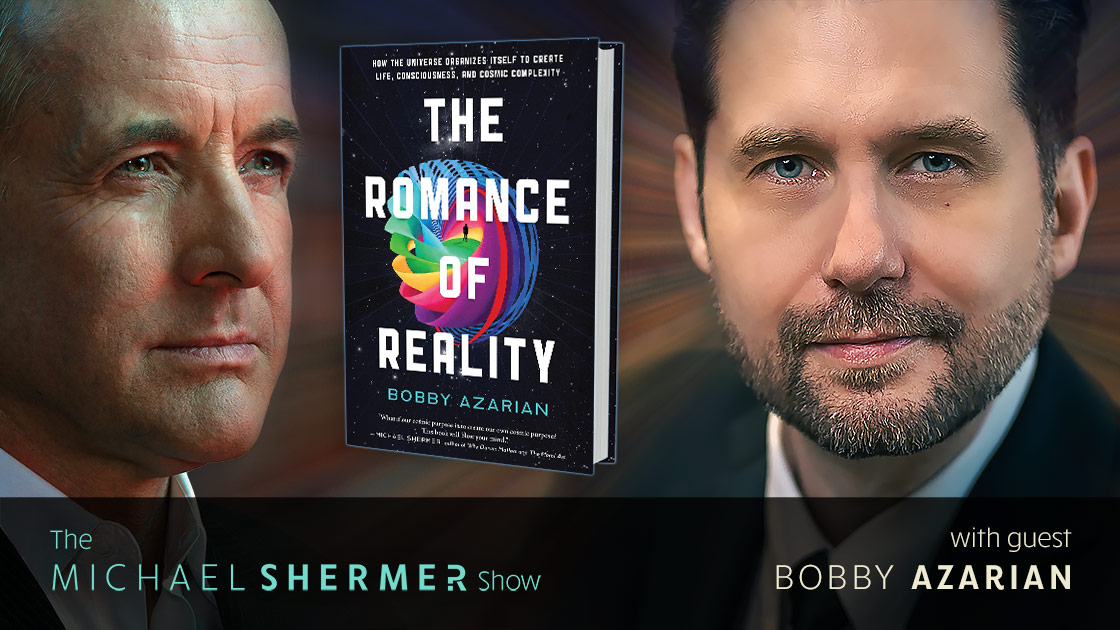
Shermer and Azarian discuss: laws of thermodynamics and directionality • how complexity formed after the Big Bang • laws of nature: discovered or created or both? • Stephen Jay Gould and contingency vs. necessitating laws of nature • convergent evolution and directionality in evolution • the left wall of simplicity • leading theories for the origin of life • complexity theory and emergence • consciousness, the self, and other minds • free will, determinism, compatibilism, panpsychism • Is there purpose…
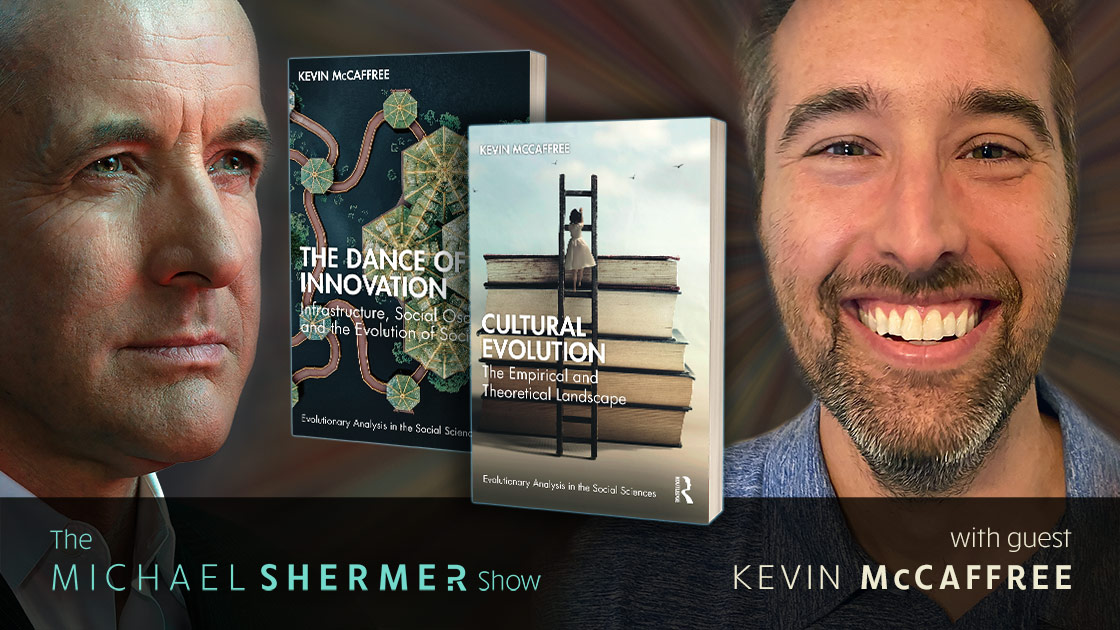
Since the dawn of social science, theorists have debated how and why societies appear to change, develop and evolve. Shermer speaks with sociologist Kevin McCaffree about: his research on crime and gun violence • diversity, equity, and inclusion • political polarization •cultural and biological evolution • horizontal/equalitarian vs. vertical/hierarchical societies • human selfishness and the problem of altruism, and what the future holds for humanity and society…

Biological sex is no longer accepted as a basic fact of life. Shermer and Joyce discuss: What is a woman? What is a man? • conflicting rights: trans vs. women • sex vs. gender • gender dysphoria • social contagions • gender affirming care • puberty blockers, testosterone, hormone treatment • detransitioning • top surgery, phalloplasty, vaginoplasty • preferred pronouns: compelled speech ≠ free speech • trans sports • exclusive spaces, and more…
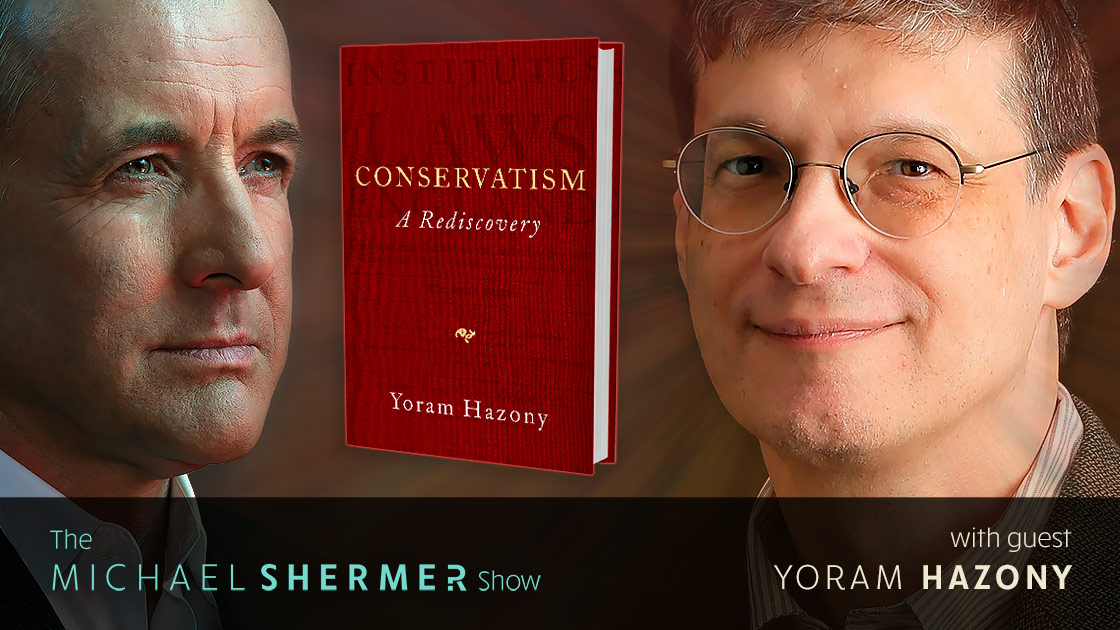
Political theorist Yoram Hazony argues that the best hope for Western democracy is a return to the empiricist, religious, and nationalist traditions of America and Britain. Shermer makes the case for Enlightenment liberalism, with its focus on science and reason, as the primary driver of moral progress over the centuries.
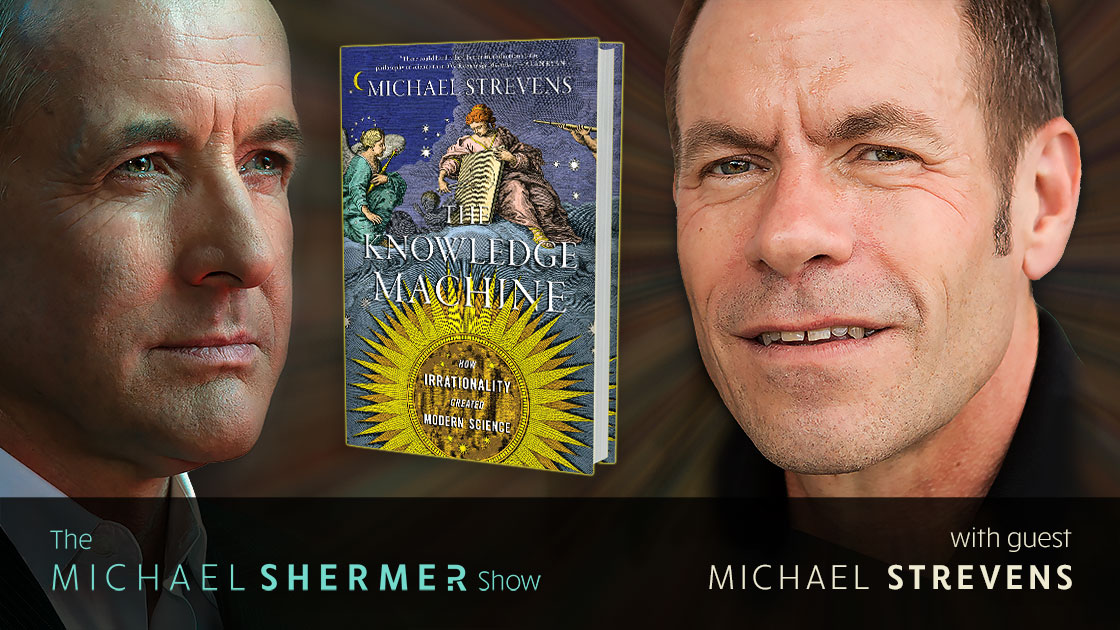
Shermer and Strevens discuss: irrationality and how it drives science • the knowledge machine • the replication crisis, what caused it, and what to do about it • verification vs. falsification • the iron rule of explanation • Bayesian reasoning vs. falsification • climate/evolution skeptics • model dependent realism • humanism • theistic arguments for: God, origin of life, morality, consciousness • known knowns, known unknowns, and unknown unknowns • how to evaluate media sources of science.
← PREVIOUS
NEXT →




























